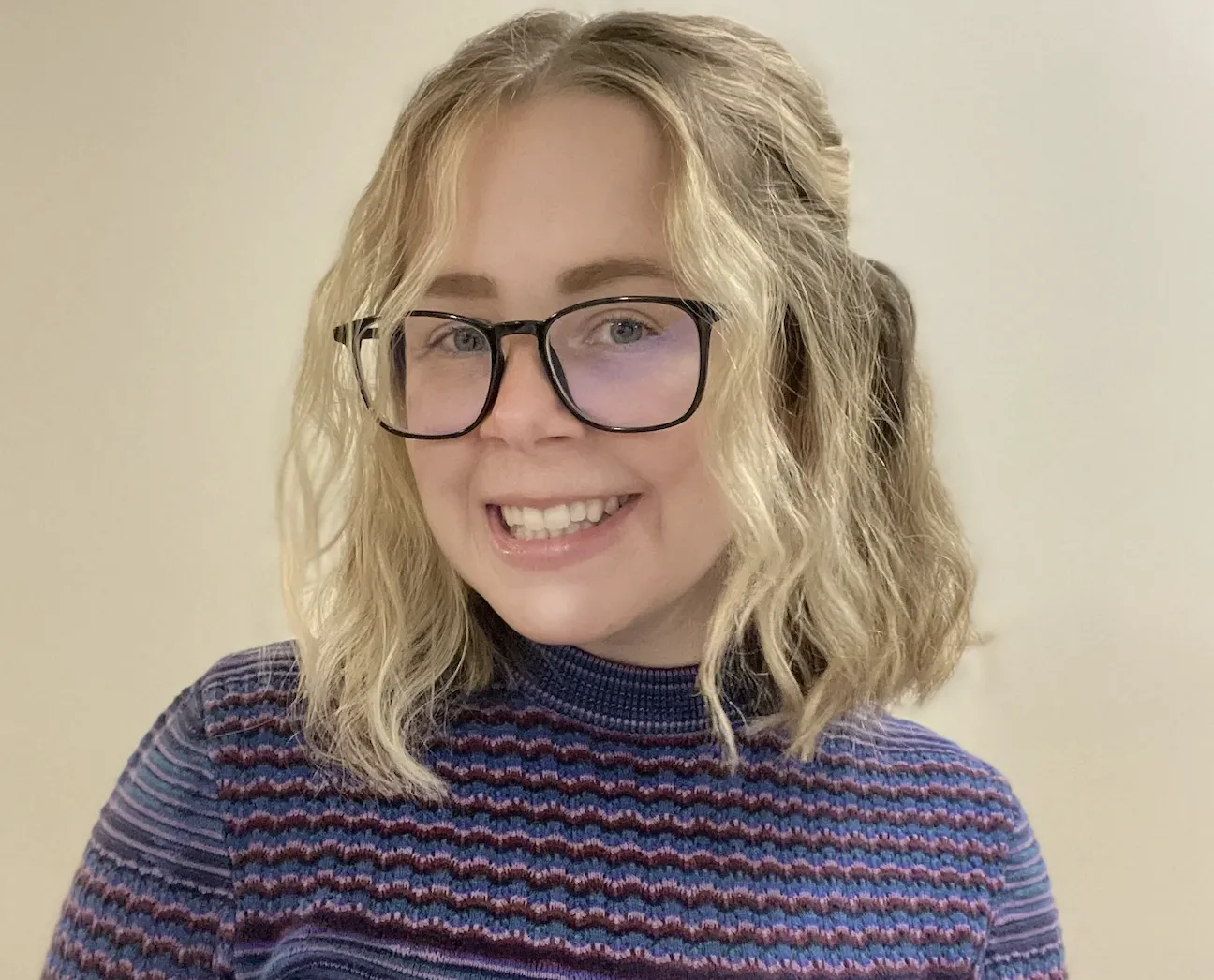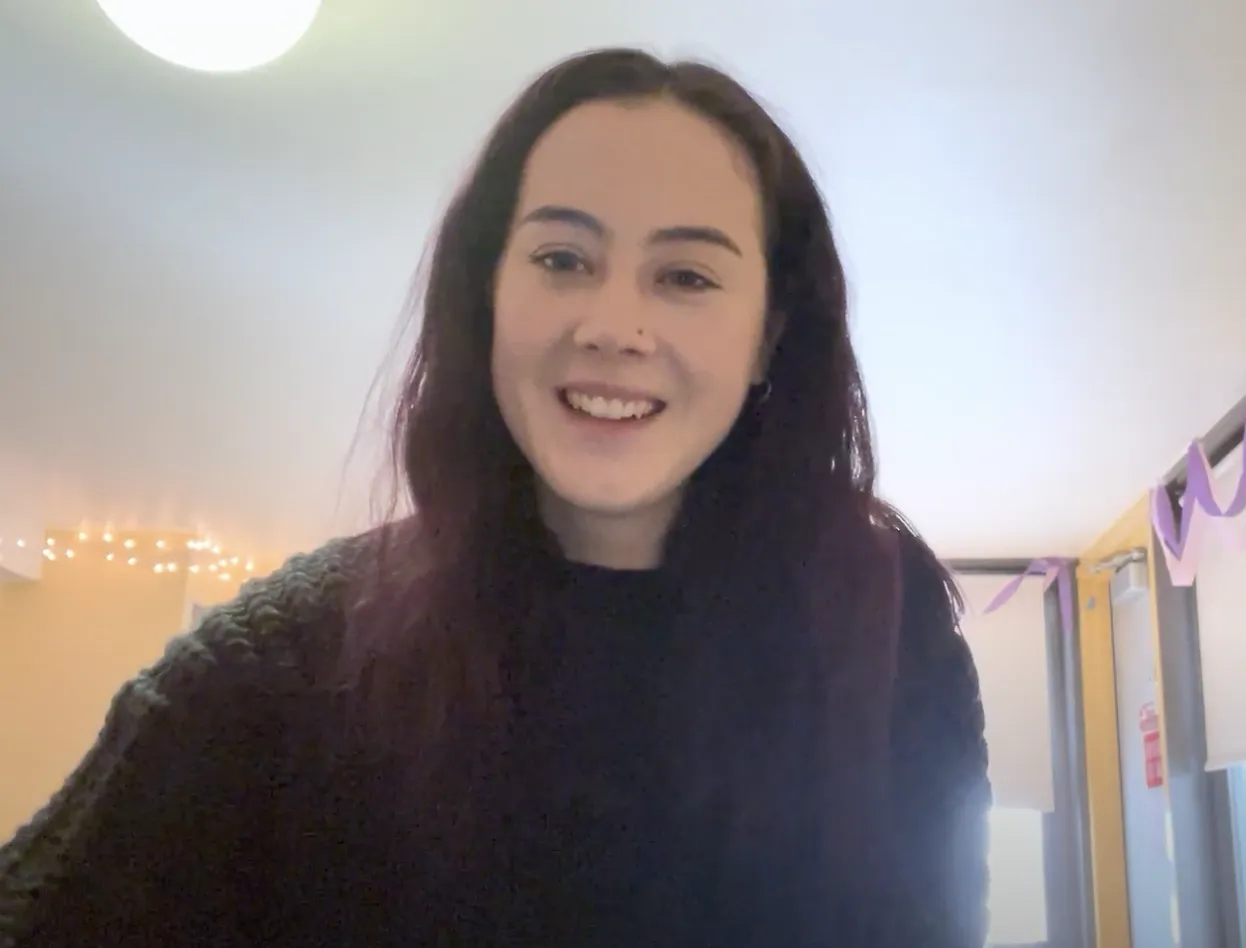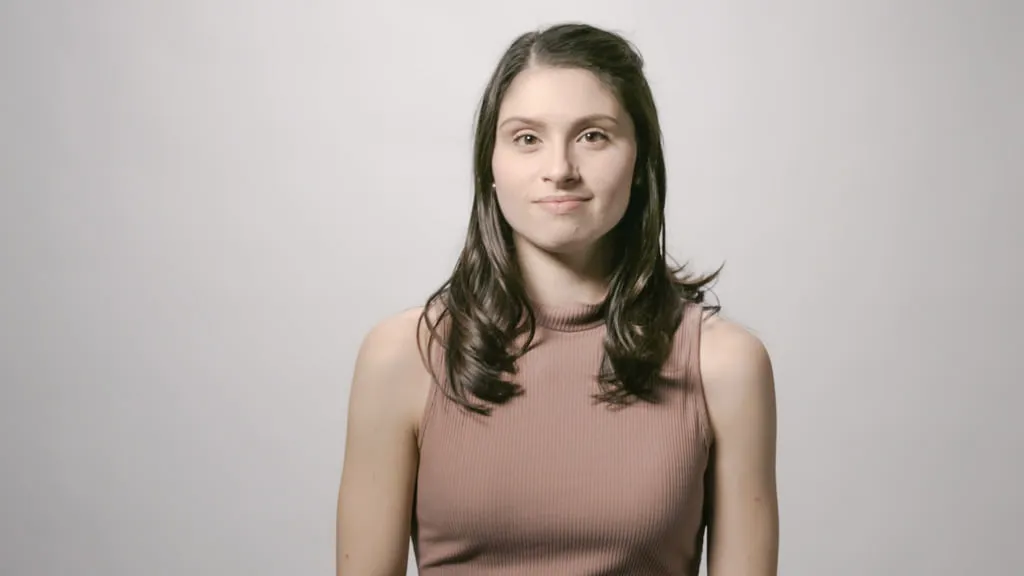Get the skills to help people be independent.
The Master of Occupational Therapy program at Worcester State University provides you with the theoretical and practical knowledge to become a competent, compassionate practitioner who helps people of all ages build or regain the skills needed to live full and productive lives. Our full-time day program is an exceptional value.
An integral component of our curriculum, Level II Fieldwork provides you with valuable, real-world experience—and helps you establish important professional connections that may lead to permanent jobs. During your two, full-time, 12-week sessions, you will work alongside licensed, registered occupational therapists, helping individuals who have psychosocial and physical disabilities in settings such as hospitals, mental health facilities, and outpatient clinics.
In addition, you will have the opportunity to conduct hands-on research in an area that interests you, culminating in a thesis paper. In recent years, students’ research has been published in the American Occupational Therapy Association’s Special Interest Sections Quarterly newsletters, and OT Practice Magazine.
Any individual who has been convicted of a felony or misdemeanor involving an act likely to affect professional practice should meet with the Department Chair prior to applying to the program. Prior incidents may affect eligibility for fieldwork, certification, and employment. A CORI check and/or drug test is typically required prior to Fieldwork Level I and Level II placements.
Graduates of Worcester State’s MOT program are eligible to sit for the National Board for Certification in Occupational Therapy (NBCOT) examination, for which this program boasts a consistently high pass rate. A passing score on this examination allows the graduate to apply for a license to practice that is required by most states within the United States, including Massachusetts. For further information regarding certification, contact: NBCOT, One Bank Street, Suite 300, Gaithersburg, Maryland, 20878; (301) 990-7979.
The Occupational Therapy Program is accredited by the Accreditation Council for Occupational Therapy Education (ACOTE) of the American Occupational Therapy Association (AOTA). For further information regarding accreditation, contact: ACOTE, 7501 Wisconsin Avenue, Suite 510E, Bethesda, MD 20814; 301-652-AOTA; or www.acoteonline.org. This program is recognized by the World Federation of Occupational Therapists.
Requirements for Occupational Therapy
-
- Program entry is only open to currently enrolled Worcester State Occupational Studies students.
- Cumulative GPA of 3.2 or better in OT undergraduate major and prerequisite courses (100 through 400-level courses).
- Current Worcester State occupational studies majors that have completed their junior year, and are interested in earning the masters degree, should inform the Graduate Program Coordinator of their plans to continue via the Notice of Intent form, so that a decision on conditional admission can be made.
- All graduate courses (900-level courses) must be completed with a B- or better.
- Students must maintain a cumulative graduate GPA of 3.0 (900-level courses).
- Courses must be taken in prescribed sequence or with the department chair’s approval.
- All coursework must be completed prior to beginning Level II Fieldwork.
- The second Level II Fieldwork must be completed within 12 months of the academic preparation.
-
Bachelor of Science in Occupational Studies (BSOS) Class of 2026 and Beyond
During the junior year, students will submit a Notice of Intent to the Graduate Program Coordinator. In July following their junior year, students’ GPAs will be reviewed. Students must have a cumulative grade point average (GPA) of 3.2 in the OT courses and prerequisites to be considered for conditional acceptance to the graduate program. Once conditionally accepted, senior BSOS students must maintain a GPA of 3.2 in the OT major courses to receive full acceptance into the MOT program.
Programs of Study in Occupational Therapy
-
First-Year Fall Semester
- OT 101 Introduction to Occupational Studies of Wellness/Disability (3 credits)
- BI 161 Anatomy & Physiology I (4 credits)
- PS 101 General Psychology (3 credits)
First-Year Spring Semester
- OT 102 Occupational Studies of Wellness/Disability Groups (3 credits)
- BI 162 Anatomy & Physiology II (4 credits)
Sophomore Fall Semester
- OT 203 Occupational Therapy Theories (3 credits)
- PS 210 Developmental Psychology (3 credits)
- BI 215 Neuroscience (4 credits)
- MA 150 Statistics I or PS 275 Psychological Statistics (4 credits)
Sophomore Spring Semester
- OT 211 Kinesiology Lab (1 credit)
- BI 271 Kinesiology (3 credits)
- PS 322 Psych of Aging (3 credits)
Junior Fall Semester
- OT 301 Psychosocial Wellness/Disability (2 credits)
- OT 302 Psychosocial Therapeutic Approaches (3 credits)
- OT 304 Psychosocial Therapeutic Approaches Lab (2 credits)
- OT 317 Research I (3 credits)
Junior Spring Semester
- OT 312 Physiological Wellness/Disability (2 credits)
- OT 313 Physiological Therapeutic Approaches (3 credits)
- OT 318 Physiological Therapeutic Approaches Lab (2 credits)
Senior Fall Semester
- OT 401 Occupational Performance & Context for Older Adults (2 credits)
- OT 402 Therapeutic Approaches for Older Adults (3 credits)
- OT 403 Therapeutic Approaches Lab for Older Adults (2 credits)
- OT 404 Assistive Technology I (3 credits)
- OT 407 Research II (3 credits)
Senior Spring Semester
- OT 421 Occupational Performance & Context for Children/Adolescents (2 credits)
- OT 427 Therapeutic Approaches for Children/Adolescents (3 credits)
- OT 423 Therapeutic Approaches Lab Children/Adolescents (2 credits)
- OT 424 Assistive Technology II (3 credits)
- OT 426 Organizational & Professional Issues I (3 credits)
BSOS Granted
Graduate Summer Semester
- OT 908 Community Health (3 credits)
- OT 928 Thesis Seminar I (3 credits)
- OT 933 Assessment and Evaluation Across the Lifespan (3 credits)
Graduate Fall Semester
- OT 903 Clinical Reasoning I (3 credits)
- OT 929 Thesis Seminar II (3 credits)
- OT 931 Organizational & Professional Issues II (3 credits)
Graduate Spring Semester
- OT 905 Clinical Reasoning II (3 credits)
- OT 906 Global Health Issues (3 credits)
- OT 930 Thesis Seminar III (3 credits)
Graduate Summer/Fall Semester
- OT 920 Physical Disabilities Fieldwork (3 credits)
- OT 921 Psychosocial Fieldwork (3 credits)
-
1st Year Summer I
- OT 101 Intro to Occupational Studies of Wellness/Disability (3 credits)
- BI 271 Kinesiology (3 credits)
- OT 211 Kinesiology Lab (1 credit)
1st Year Summer II
- OT 102 Occupational Studies of Wellness/Disability Groups (3 credits)
- OT 203 Occupational Therapy Theories (3 credits)
1st Year Fall Semester
- OT 301 Psychosocial Wellness/Disability (2 credits)
- OT 302 Psychosocial Therapeutic Approaches (3 credits)
- OT 304 Psychosocial Therapeutic Approaches Lab (2 credits)
- PS 322 Psychology of Aging (3 credits)
- OT 317 Research I (3 credits)
1st Year Spring Semester
- OT 312 Physiological Wellness/Disability (2 credits)
- OT 313 Physiological Therapeutic Approaches (3 credits)
- OT 318 Physiological Therapeutic Approaches Lab (2 credits)
2nd Year Fall Semester
- OT 401 Occupational Performance & Context for Older Adults (2 credits)
- OT 402 Therapeutic Approaches for Older Adults (3 credits)
- OT 403 Therapeutic Approaches Lab for Older Adults (2 credits)
- OT 404 Assistive Technology I (3 credits)
- OT 407 Research II (3 credits)
2nd Year Spring Semester
- OT 421 Occupational Performance & Context for Children/Adolescents (2 credits)
- OT 423 Therapeutic Approaches Lab for Children/Adolescents (2 credits)
- OT 424 Assistive Technology II (3 credits)
- OT 426 Organizational & Professional Issues (3 credits)
- OT 427 Therapeutic Approaches for Children/Adolescents (3 credits)
- OT 928 Thesis Seminar I (3 credits)
3rd Year Summer Semester
- OT 903 Clinical Reasoning I (3 credits)
- OT 908 Community Health (3 credits)
- OT 929 Thesis Seminar II (3 credits)
- OT 933 Assessment and Evaluation Across the Lifespan (3 credits)
3rd Year Fall Semester
- OT 905 Clinical Reasoning II (3 credits)
- OT 906 Global Health Issues (3 credits)
- OT 930 Thesis Seminar III (3 credits)
- OT 931 Organizational & Professional Issues II (3 credits)
3rd Year Spring Semester
- OT 920 Physical Disabilities Fieldwork II (3 credits)
- OT 921 Psychosocial Fieldwork II (3 credits)
Explore sample courses in Occupational Therapy -
-
-
-
-
-
OT-903 Clinical Reasoning I
OT-906 Global Health Issues
OT-908 Community Health
OT-920 Physical Disabilities Fieldwork II
OT-931 Organizational and Professional Issues II
OT-933 Assessment and Evaluation across the Lifespan



Fieldwork
Level I Fieldwork is to provide the student with an opportunity to develop professional behaviors and basic understanding of a particular client population.
Level II Fieldwork is to offer an in-depth practical experience that will enable you to become a competent, entry-level, generalist occupational therapist. In addition to those experiences designed to complement specific program courses (Level I Fieldwork), the Accreditation Council for Occupational Therapy Education (ACOTE) requires a minimum of 24 weeks’ full-time Level II Fieldwork.
Worcester State requires that students complete two, 12-week Level II Fieldwork placements, one fieldwork in physical disability (OT 920) and one in psychosocial disability (OT 921).
All students must complete all required fieldwork within 12 months of completion of the academic program. In addition, students must complete all fieldwork requirements before they are eligible to sit for the national certification examination.
Fieldwork Education Resources
Cost of Attendance
-
MA Residents
# of Credits Tuition Fees¹ OT Books² or FW Fees EXXAT³ First-Year – Fall 16 UG $485.00 $5,687.00 $250.00 $0.00 First-Year – Spring 16 UG $485.00 $5,687.00 $250.00 $0.00 Sophomore Year – Fall 16 UG $485.00 $5,687.00 $150.00 $0.00 Sophomore Year – Spring 13 UG $485.00 $5,687.00 $200.00 $0.00 Junior Year – Fall 16 UG $485.00 $5,687.00 $500.00 $200.00 Junior Year – Spring 16 UG $485.00 $5,687.00 $300.00 $0.00 Senior Year – Fall 16 UG $485.00 $5,687.00 $800.00 $0.00 Senior Year – Spring 13 UG $485.00 $5,687.00 $500.00 $0.00 Grad Year -Summer 9 Grad $1,701.00 $1,705.50 $500.00 $0.00 Grad Year – Fall 9 Grad $1,701.00 $1,705.50 $500.00 $0.00 Grad Year – Spring 9 Grad $1,701.00 $1,705.50 $500.00 $0.00 Grad Year – Summer/Fall 6 Grad $1,134.00 $1,137.00 $90.00 $0.00 TOTAL COST $10,117.00 $51,749.50 $4,540.00 $200.00 New England Regional Residents
# of Credits Tuition Fees¹ OT Books² or FW Fees EXXAT³ First-Year – Fall 16 UG $727.00 $5,687.00 $250.00 $0.00 First-Year – Spring 16 UG $727.00 $5,687.00 $250.00 $0.00 Sophomore Year – Fall 16 UG $727.00 $5,687.00 $150.00 $0.00 Sophomore Year – Spring 13 UG $727.00 $5,687.00 $200.00 $0.00 Junior Year – Fall 16 UG $727.00 $5,687.00 $500.00 $200.00 Junior Year – Spring 16 UG $727.00 $5,687.00 $300.00 $0.00 Senior Year – Fall 16 UG $727.00 $5,687.00 $800.00 $0.00 Senior Year – Spring 13 UG $727.00 $5,687.00 $500.00 $0.00 Grad Year -Summer 9 Grad $1,701.00 $1,705.50 $500.00 $0.00 Grad Year – Fall 9 Grad $1,701.00 $1,705.50 $500.00 $0.00 Grad Year – Spring 9 Grad $1,701.00 $1,705.50 $500.00 $0.00 Grad Year – Summer/Fall 6 Grad $1,134.00 $1,137.00 $90.00 $0.00 TOTAL COST $12,053.00 $51,749.50 $4,540.00 $200.00 Out-of-State Residents
# of Credits Tuition Fees¹ OT Books² or FW Fees EXXAT³ First-Year – Fall 16 UG $3,525.00 $5,687.00 $250.00 $0.00 First-Year – Spring 16 UG $3,525.00 $5,687.00 $250.00 $0.00 Sophomore Year – Fall 16 UG $3,525.00 $5,687.00 $150.00 $0.00 Sophomore Year – Spring 13 UG $3,525.00 $5,687.00 $200.00 $0.00 Junior Year – Fall 16 UG $3,525.00 $5,687.00 $500.00 $200.00 Junior Year – Spring 16 UG $3,525.00 $5,687.00 $300.00 $0.00 Senior Year – Fall 16 UG $3,525.00 $5,687.00 $800.00 $0.00 Senior Year – Spring 13 UG $3,525.00 $5,687.00 $500.00 $0.00 Grad Year -Summer 9 Grad $1,701.00 $1,705.50 $500.00 $0.00 Grad Year – Fall 9 Grad $1,701.00 $1,705.50 $500.00 $0.00 Grad Year – Spring 9 Grad $1,701.00 $1,705.50 $500.00 $0.00 Grad Year – Summer/Fall 6 Grad $1,134.00 $1,137.00 $90.00 $0.00 TOTAL COST $34,437.00 $51,749.50 $4,540.00 $200.00 ¹ Subject to change, based on 24-25 University Catalog
² Approximate cost to purchase
³ After initial, one-time subscription fee, cost would depend on FW requirements (as needed)
Does not include living expenses (room and board), meal plans, health insurance or FW-related costs (transportation) -
MA Residents
# of Credits Tuition Fees¹ Grad Year 1 – Summer 13 UG $1,924.00 $2,437.50 Grad Year 1 – Fall 13 UG $485.00 $5,687.00 Grad Year 1 – Spring 7 UG $283.00 $3,317.44 Grad Year 2 – Summer 0 $0.00 $0.00 Grad 2 – Fall 13 UG $485.00 $5,408.00 Grad Year 2 – Spring 13 UG and 3 Grad $485.00 and $567.00 $5,687 and $568.50 Grad Year 3 – Summer 12 Grad $2,268.00 $2,274.00 Grad Year 3 – Fall 12 Grad $2,268.00 $2,274.00 Grad Year 3 – Spring (FW) 6 Grad $1,134.00 $1,137.00 TOTAL COST $9,899.00 $29,069.00 Out-of-State Residents
# of Credits Tuition Fees¹ Grad Year 1 – Summer 13 UG $1,924.00 $2,437.50 Grad Year 1 – Fall 13 UG $3,525.00 $5,687.00 Grad Year 1 – Spring 7 UG $2,056.25 $3,317.44 Grad Year 2 – Summer 0 $0.00 $0.00 Grad 2 – Fall 13 UG $3,525.00 $5,687.00 Grad Year 2 – Spring 13 UG and 3 Grad $3525.00 and $567.00 $5,687.00 and $568.50 Grad Year 3 – Summer 12 Grad $2,268.00 $2,274.00 Grad Year 3 – Fall 12 Grad $2,268.00 $2,274.00 Grad Year 3 – Spring (FW) 6 Grad $1,134.00 $1,137.00 TOTAL COST $20,792.25 $29,069.00 ¹ Subject to change, based on 24-25 University Catalog
Does not include living expenses (room and board), meal plans, health insurance or FW-related costs (transportation)
Outcomes in Occupational Therapy
-
Date of Graduation Number of Students Entering/Graduating as a Cohort* Graduation Rate May/August 2022 0/1 (from December 2021)
10/10100% December 2022 19/19 100% May 2023 7/7 100% December 2023 18/18 100% May 2024 6/7** 85% December 2024 23/24** 95% TOTAL 83/85 97.6% *Denotes the number of students entering the 900-level courses (graduate courses)
**Delayed for various reasons

